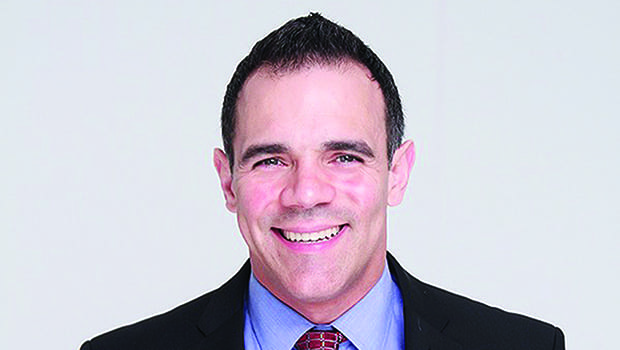
For small businesses, chasing government contracts can be the difference between not just surviving, but thriving. Thanks to the recent boom in federal government work awarded to small businesses, government contracts are abundant. But in Massachusetts the chase is not just a metaphor, as more and more Bay State companies venture beyond the state and region to seal the deal.
Working out-of-state adds logistical challenges and risk to many small businesses, but some local companies are proving that the extra effort is worth it because they are able to more than doublei and triple their revenues.
Exceeding goals
In the last two years, the federal government hit its target of 23 percent of its contract work going to small businesses, a goal it established in 1997. Last year set a new high when that percentage reached 24.99 percent, which translated into $91.1 billion dollars. That’s an increase of $8 billion over 2013 contracts,
By the Numbers
By the numbers
23 percent: The federal government’s target of contract work going to small businesses, which it has hit the last two years.
24.99 percent: The percentage of contract work going to small businesses in 2014 — a new high.
$91 billion: The amount awarded through federal contracts to small businesses in 2014 — an increase of $8 billion over 2013 contracts.
$34.7 billion Small “disadvantaged” businesses led the way with $34.7 billion in federal contracts awarded in 2014, up from $30.6 billion the prior year.
$2.4 billion Federal contracts awarded to small business in Massachusetts dropped to $2.4 billion in 2014 from $3.4 billion in 2013.
$231 million: The amount awarded to women-owned businesses in Massachusetts in 2014 — up from $199 million in 2013.
$263 million: The amount awarded to small “disadvantaged” businesses in Massachusetts in 2014 — up from $201 million in 2013.
That achievement included meeting targeted goals for contracts awarded to businesses owned by females, so-called “disadvantaged” people, and disabled veterans. Small disadvantaged businesses led the way with $34.7 billion in federal contracts awarded in 2014, up from $30.6 billion the prior year.
Maria Contreras-Sweet, head of the U.S. Small Business Administration, credits the country’s small businesses owners for their success in providing the services government agencies need.
Yet within Massachusetts, a state that has long been friendly to small business, the picture is a bit cloudy. According to David Polatin, contracting lead in the SBA district office in Massachusetts, federal contracts awarded to small business in Massachusetts dropped to $2.4 billion in 2014 from $3.4 billion in 2013. But contracts to women-owned business jumped from $199 million in 2013 to $231 million in 2014 and small disadvantaged businesses pulled in $263 million last year, up from $201 million the year before.
Abraham Gonzalez, founder and head of the Boston-based construction company One Way Development, represents the kind of small business that is taking advantage of the national surge in federal work by expanding the number of states in which he does business.
Gonzalez started his company in 2004 but began getting certification to do government work in 2008. His company has numerous certifications now, including as a disadvantaged business.
The difference between before and after One Way Development started getting government work is substantial. The company now has expanded its client base to include the U.S. Army Corps of Engineers, Department of Justice, the U.S. Navy and the U.S. Coast Guard, with projects ranging from $25,000 to $1.2 million. It has completed projects all over New England, including work on a federal courthouse in Portland, Maine and a federal correctional facility in Danbury, Conn.
“[Federal contracts have] quadrupled my business,” Gonzalez said. “I went from an office in my house to one with nine office workers and 15 guys in the field. We have a current payroll of 34 people, across five different states.”
Gonzalez cites another big advantage of certification: it enables him to use his computer to tap into digitized federal contract procurement systems and scour for work anywhere he wants.. He no longer has to beat feet on the pavement to drum up business. He can run and operate his business in Boston and pick up work in Maine or Vermont or Connecticut without leaving his desk.

Author: Photo courtesy of Dnutch AssociatesDenise Jones, president and CEO of Dnutch Associates.
Denise Jones, president and CEO of Dnutch Associates, has to get out of her seat a bit more than Gonzalez to find government work for her Methuen-based systems engineering consulting company, but the result has been similar.
In 2009, she started working to secure certification, which opened the door to government work after more than 15 years of concentrating on commercial clients. Dnutch Associates has women-owned small businesses and service disabled veteran-owned small business certification, amongst others. That’s help generate about $3 million in annual revenue, with customers such as the U.S. Army, Navy and Air Force, as well as the Department of Transportation and Department of Defense.
Jones started the company in 1993, which previously topped out at around 15 employees with its commercial client base; now the company employs more than 25 people. Jones said she believes the company can boost its yearly revenue into the $5 to $10 million range.
Despite its Massachusetts base of operation, Dnutch Associates’ growth stems from its work in Washington, D.C.
Jones says that roughly 85 to 90 percent of her company’s work comes from federal contracts, with 80 percent of that based in the Washington, D.C. area. To accommodate this demand, Dnutch Associates has a small office in Maryland Jones spends her time commuting between the Maryland location and the company’s Methuen headquarters.
“I need to spend time down there,” Jones said. “You have to put time in to get relationships with the agencies and to understand how to market to the federal government.”
But Jones, who grew up in Lynn and has family in Cambridge, has no intentions of moving Dnutch Associates entirely down to Washington. She says can run the business from Massachusetts and continue to land big contracts from out-of-state.
Mass. business strength
The SBA’s David Polatin says that the district office will continue to work to connect small businesses with the federal contract dollars available in Massachusetts, but agrees that state companies take advantage of government work wherever they can get it. He emphasized that the strength of Massachusetts’ small businesses make them valuable elsewhere because they have proven reliability, efficiency, and track records.
“The contracts can be awarded anywhere in the country. Construction is usually in-state or in New England. Other contracts can be anywhere,” Polatin said. “With computers, a lot of work can be done off-site. Even for a service contact, say janitorial, the janitorial firm will pick up the employees who were already working on the contract in another state. Only a few key people would have to manage the contract. There are federal buildings, agencies, installations all over the country. Many states have more than we do in Massachusetts.”






